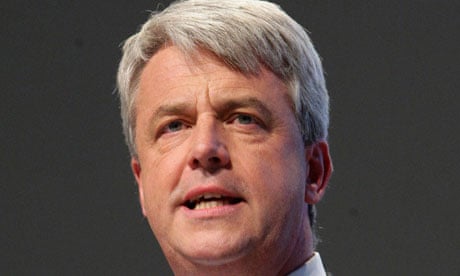No 10 has been so surprised by the radical nature of Andrew Lansley's NHS proposals that David Cameron has ordered a strengthening of his own policy unit so the centre is better equipped to challenge departmental plans in future. Government sources admitted that Downing Street simply did not have the specialist expertise in-house to challenge plans put forward by cabinet ministers.
Ahead of the publication of the NHS bill today, Lansley, the health secretary, was today again forced to defend the plans, which were not in the Conservative manifesto or the coalition agreement. He denied he had sprung a surprise on his cabinet colleagues, in particular by proposing for the first time in the government white paper in June that primary care trusts should be scrapped. Senior coalition members admit they have been forced on the defensive by claims that ministers did not know whether the modernisation was a revolution or an evolution of plans set in train by Blair's health secretaries. A senior Liberal Democrat said: "There is a real risk introducing this structure at a time when the years of financial plenty are over. The government is seeking £20bn of efficiency savings over four years, and there is a real danger we will end with a car crash of reorganisation and budgetary crisis in which we, the coalition, get the blame."
Lansley defended the relatively late change of course over PCTs yesterday, saying: "We were very clear before the election that we were going to transfer the responsibility for planning, designing and commissioning services to GP-led consortia. Our Liberal Democrat colleagues were very clear they wanted to increase democratic legitimacy, so that the way services are designed in their locality are accountable through the council.
"We started with the question of whether this could be done through primary care trusts. The conclusion we reached is that it really does not work."
Part of the problem is that Cameron did not want to create alarm over the NHS before the election. He raised expectations of reform in schools, but played them down in the NHS, telling the Royal College of Nursing in 2009: "There will be no more pointless reorganisations that aim for change, but instead bring chaos. Too often ministers have rearranged the NHS like they're shuffling a pack of cards … It reveals an attitude to the NHS that sees it just as a bureaucratic machine to be taken apart and put together again." But this message probably obscured the extent to which Lansley planned not only to revitalise Labour reforms, but add to them, as set out in the draft Tory health manifesto in January 2010.
Certainly, by November, Lansley's tone had changed: "I make no bones: there is a reorganisation of the management of the NHS. Frankly, it would have had to happen anyway."
Conservative admirers of Lansley admit that – seven years into the health brief – he is not inclined to explain himself to generalists. This partly explains why Cameron has taken a much more hands-on role in selling the reforms.
Lansley's style has alienated some Lib Dems, such as Andrew George, who sits on the health select committee. He complained recently: "The coalition parties went into the coalition agreement saying there will be no major top-down reorganisation. That is precisely what this is and therefore should be subject to significant parliamentary scrutiny." Lib Dems insist there will have to be proper pilots and, if necessary, delays if GP commissioning proves to be problematic. "Primary care trusts are due to be abolished in April 2013, but don't bet on that happening two years out from an election," said one sceptic.




